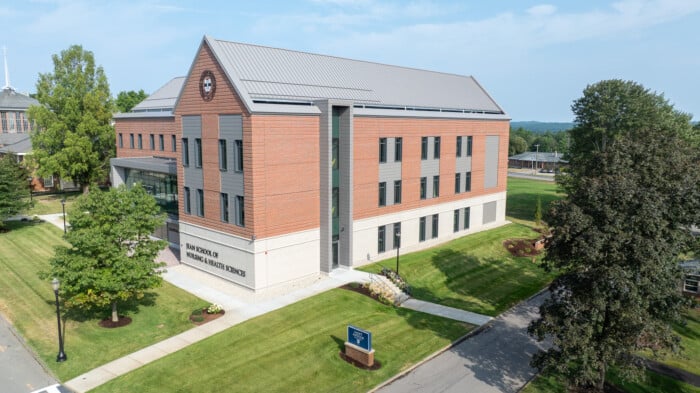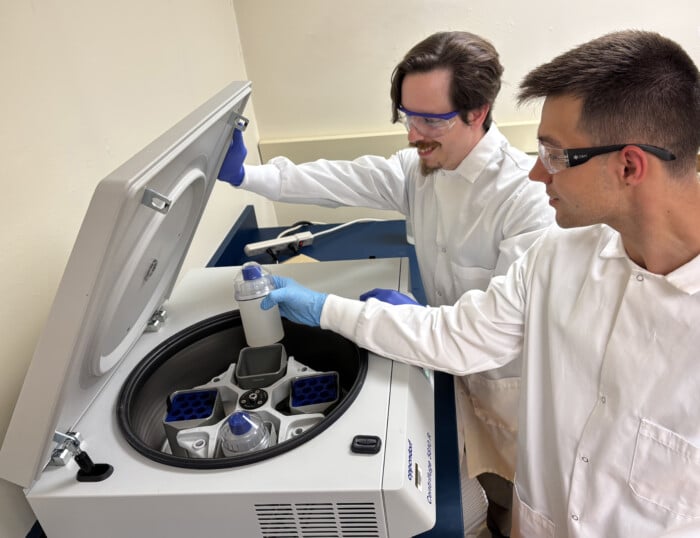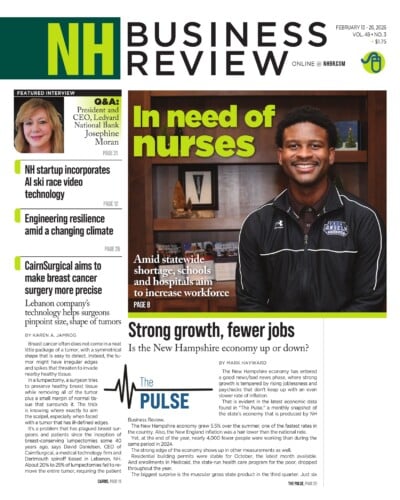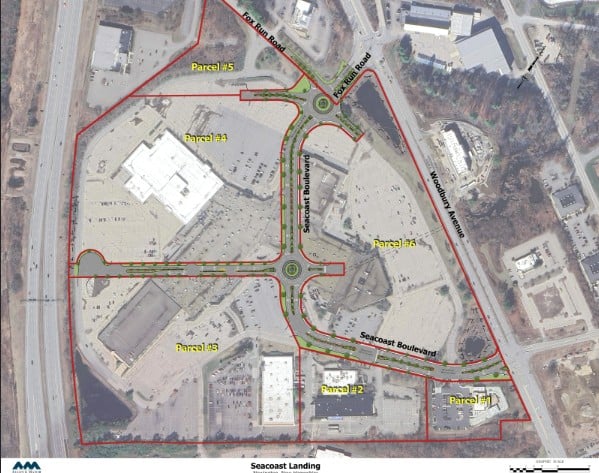GBCC helps meet growing demand for surgical technologists
When Access Sports Medicine and Orthopaedics sought a surgical technologist to work in its ambulatory surgical center in Auburn, NH, the practice knew that Great Bay Community College (GBCC) was a great resource known for its expertise in this specialty area and connections to recent graduates.
Portsmouth-based GBCC offers one of the few associate degree programs in Surgical Technology in the region and the only one in New Hampshire that is accredited by the Commission on Accreditation of Allied Health Programs (CAAHEP). After successfully completing the program, students are qualified to take the National Board of Surgical Technology and Surgical Assisting (NBSTSA) national certification exam to become a certified surgical technologist (CST). In 2024, GBCC had a 100% pass rate on the exam and is on track to achieve that again this year.
Surgical technologists maintain patient safety and surgical efficiency before, during and after operations. They play a vital role in ensuring smoothly functioning operating rooms by preparing surgical instruments, maintaining a sterile environment, and supporting surgeons and nurses during procedures.
GBCC’s Surgical Technology associate degree program prepares students for essential entry-level positions at hospitals, surgical centers and private practices through a curriculum set by ARC/STSA and work at clinical sites located throughout the region. GBCC accepts only 20 students per class and 100% of graduates are employed in the field, quite often at the clinical site where they worked during their education. Currently, GBCC partners with nine hospitals in New Hampshire, including MGB/Wentworth-Douglass Hospital, Elliot Hospital, Catholic Medical Center and Portsmouth Regional Hospital, as well as three hospitals in both Maine and Massachusetts.
New Hampshire is experiencing a shortage of many medical professionals, including surgical technologists. Intense work during the COVID pandemic led some employees to retire or leave the field, while an aging population is prompting an increase in demand for surgical services. The result is a workforce shortage in surgical technology that will take some creativity to resolve.
According to Kristin Whitney, the program coordinator of the Surgical Technology program at GBCC, GBCC is collaborating with area employers to explore additional clinical opportunities so the program could accept more students. “It is a little bit of a Catch-22 right now. Surgical facilities are short-staffed, so they don’t have as much time for training, yet they need to train more surgical technologists so they won’t be short-staffed,” Whitney commented.
GBCC is working with a broad range of employers in New Hampshire, Maine and Massachusetts to develop additional clinical sites and potentially expand the Surgical Technology program without compromising training or standards of care. “Our number one priority is excellent patient care. We only graduate surgical technologists who are committed to advocating for patients to help deliver the best surgical outcome that will give them the best quality of life,” said Whitney.
Amy Welton, the operating room coordinator at Access Sports Medicine’s Auburn Surgery Center, said that the practice felt fortunate to be able to hire a graduate of GBCC’s Surgical Technologist program.
“We are grateful to employ such a skilled and prepared certified surgical technologist. She immediately had a positive impact on our surgical team,” Welton commented.
Access Sports Medicine and Orthopaedics is just one of many employers in the area that are looking to tap graduates from GBCC’s Surgical Technology associate degree program. GBCC remains committed to focusing on programs such as this that align their education and training resources with a high-demand field within the community. For more information about GBCC’s associate degree program in Surgical Technology, please visit www.greatbay.edu/program/surgical-technology/.















